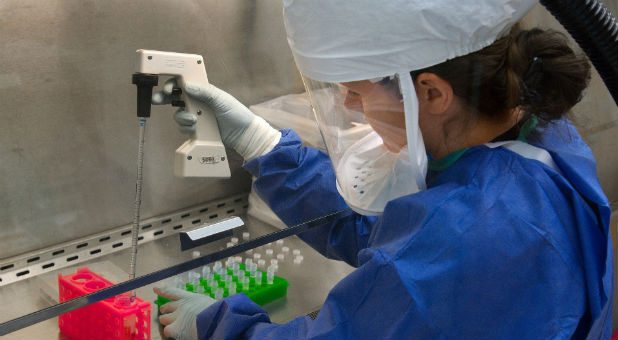Deadly Flu Mutation Could Lead to Worst Pandemic in History
Leading scientists in the field of deadly flu epidemics are worried about what could be the granddaddy of them all, and say it could be right around the corner.
They’re talking about the bird flu, also known as H7N9. Experts say it could be as bad as, or even more severe, than the worst global pandemic in recorded history. That was the Spanish flu outbreak of 1918, which killed an estimated 40 million people. That flu also originated in birds.
Alarms began sounding in the medical research community when scientists observed the bird flu was rapidly mutating and killing chickens in China. That’s scary because until now, when chickens got the bird flu it was so mild, the chickens generally did not die from it. Now, however, the virus is far stronger and deadlier. Not only are chickens dying, they’re dying fast, sometimes in just one day, and they’re spreading it to other fowl.
The bird flu outbreak among chickens is ominous for humans.
“It makes us queasy,” former global director of the World Health Organization’s Influenza Program, Keiji Fukuda, told NPR, “Because it’s a very visible way to see these viruses as restless. Some of these changes are dead-end, but some are not. And this genetic mutation is not. It’s becoming more lethal for poultry. For people? We’re not sure.”
Oftentimes flu viruses that circulate among animals are passed to people. That’s already happening in China with the H7N9 bird flu strain. When people catch the bird flu from chickens, about a third of the humans die. It’s already killed nearly 200 people this flu season (September to March). That’s more deaths than in any single season since when it was first discovered in humans four years ago.
When it comes to containing flu outbreaks, the smartest virologists in the world are stumped by this one. Guan Yi who was instrumental in minimizing the swine flu, and SARS is pessimistic about this aggressive bird flu, mainly because it is changing so fast. “We’re trying our best, but we still can’t control this virus,” He said, “It’s too late for us to eradicate it.”
This new virus presents a good-news, bad-news scenario.
The good news:
- The virus is easy to diagnose, and vaccines for chickens can be manufactured and administered quickly.
- Big cities like Shanghai have quickly shut down their live poultry markets when human cases are on the rise, which can keep it from spreading.
The bad news:
- New mutations of the bird flu virus are typically discovered in China, the site of many small poultry farms run by farmers who aren’t well-educated about the threat of bird flu and who often hide evidence of infected birds because they are afraid of losing income.
- Worldwide travel, particularly on airplanes, means outbreaks spread very rapidly.
{eoa}
Copyright The Christian Broadcasting Network, Inc., All rights reserved.














































